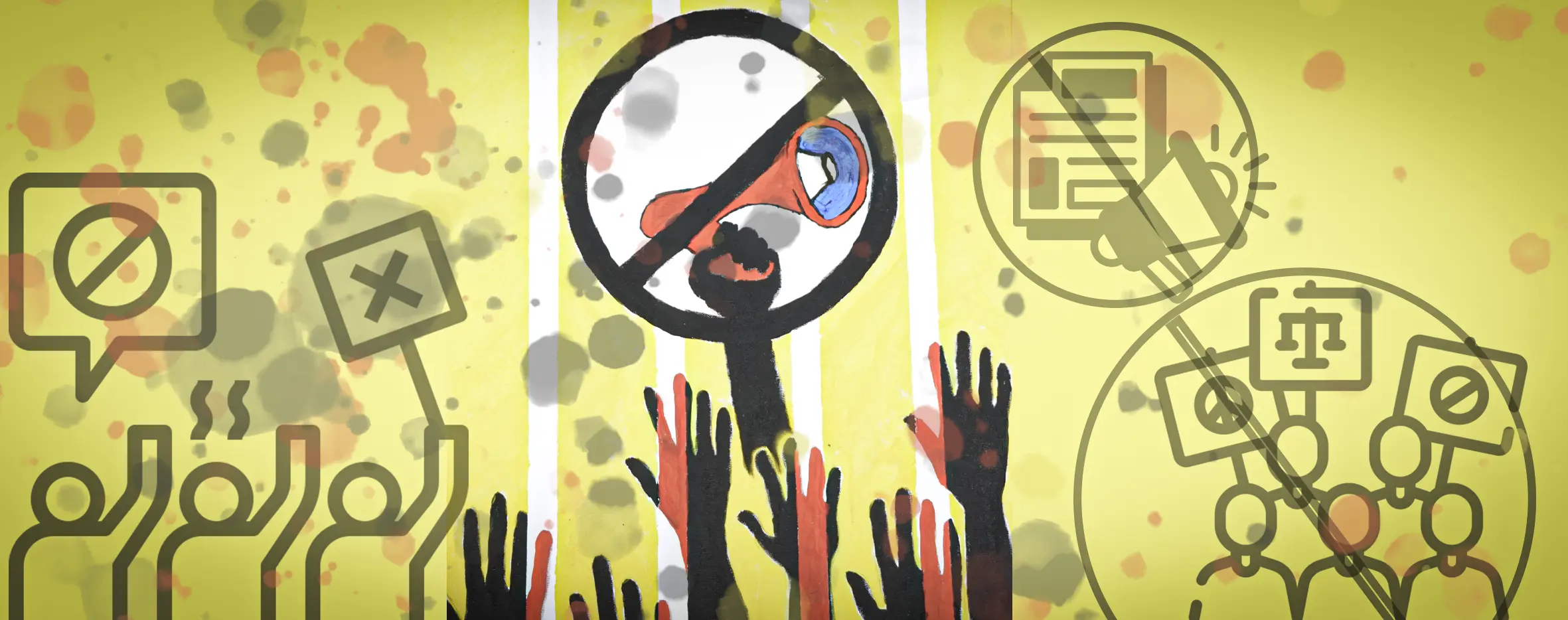On July 24, 2023, Mwatana for Human Rights released a foundational field study on civil society space in Yemen during the ongoing armed conflict that erupted in late 2014. In its first chapters, the study, conducted in collaboration with a local expert, focuses on the legal and political environments of civil society in Yemen. Among the key aspects addressed in the study are:
Methodology and Sample:
The study employed a survey method with a sample size of seventy active civil society organizations during the armed conflict. These organizations were purposefully selected from nine Yemeni governorates, namely Sana'a, Aden, Taiz, Hodeidah, Hadramout, Marib, Shabwah, Abyan, and Saada. The sample represented various formations of civil society. In addition to the sample, the study gathered information from 80 individuals belonging to diverse groups of stakeholders and interested parties. This included human rights defenders, heads of government and non-governmental offices responsible for civil society affairs, Yemeni experts and specialists in civil society issues, representatives of international donors and partners of civil society in Yemen, as well as local residents.
Key Findings of the Study:
- 94.3% of the surveyed local organizations reported being directly subjected to arbitrary restrictions, violations, and violent and flagrant reprisals outside the law during the period of armed conflict. Additionally, 32.0% of the local organizations attribute the repressive practices they face to political, partisan, and regional sorting and classification processes carried out deliberately by the conflicting parties in their respective areas of control.
- Regarding the causes of repression, 22% of the surveyed organizations attributed the actual repression they faced to prevailing administrative conditions within both official and unofficial administrative structures responsible for overseeing civil society. Furthermore, certain organizations, mostly human rights-oriented (19.0% of the sample), provided specific explanations for the repression based on the sensitivity of their human rights activities, particularly regarding monitoring human rights violations. Additionally, 17% of the representatives of local civil society organizations stated that the repression they experienced was linked to general factors associated with the armed conflict and the resulting security deterioration and exceptional measures.
- The most common restrictions and practices encountered by the surveyed organizations included arbitrary control (14.9%), restrictions on freedom of movement (14.1%), limitations on freedom of expression, access to information and facts (12.9%), as well as administrative constraints (11.7%).
- Concerning protection mechanisms, 57.1% of the surveyed organizations reported the absence of any form of protection against violations and restrictions, while the remaining organizations (42.9%) indicated the availability of protection mechanisms such as advocacy campaigns, civil solidarity, and legal protection measures like the judiciary. However, most of these organizations considered these mechanisms ineffective.
- In terms of the impact on the performance of civil society, repressive practices resulted in significant repercussions according to 65.7% of the surveyed organizations. These impacts encompassed forced permanent or temporary cessation of activities, reduced levels of field work, and the implementation of low-impact activities due to direct arbitrary control.
- In addition, 77.1% of the surveyed local organizations highlighted the crucial role of external funding in supporting the continuation of their activities. However, 27% of these organizations resent the focus of these funds on small and short-term projects.
Key Recommendations:
- Mwatana reiterated its call for establishing an international criminally-focused investigation mechanism to investigate human rights violations in Yemen, including the violation that affected the civic space organization
- All parties to the conflict must cease their repressive practices targeting different sectors of civil society in Yemen, practices targeting different sectors of civil society in Yemen.
- Local organizations should file lawsuits against unlawful restrictions and measures, based on the applicable Yemeni law on Civil Associations and Organizations, judicial system, and international protection mechanisms.
- Establish a direct and comprehensive communication channel with the local public to raise awareness about human rights, promote the significance of civic activism, and underscore the legitimacy of the roles played by independent organizations.
- The international community should help convey the challenges faced by the civil society space in Yemen, including the realities of repressive conditions, restrictions, and arbitrary actions, to global public opinion. Additionally, they should provide adequate financial and technical support to enhance the role of civil society.
- International organizations and partners should organize and support advocacy campaigns against the restrictive measures targeting the civil society space in Yemen. Additionally, they should provide assistance in enhancing the performance of civil society organizations, developing their priorities, and supporting their development programs.
- Local organizations should enhance their monitoring activities to comprehensively and objectively document human rights violations, and regularly issue reports on these violations.

-1.webp)
